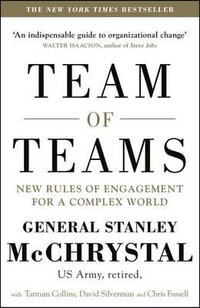Economist and best-selling author Loretta Napoleoni traces the link between the finances of the war on terror and the global economic crisis, finding connections from Dubai to London to Las Vegas that politicians and the media have at best ignored. In launching military and propaganda wars in the Middle East, America overlooked the war of economic independence waged by Al-Qaeda. The Patriot Act boosted the black market economy, and the war on terror prompted a rise in oil prices that led to food riots and distracted governments from the trillion-dollar machinations of Wall Street. Consumers and taxpayers, spurred by propaganda fears, were lured into crushing global debt. Napoleoni shows that if we do not face up to the many serious connections between our response to 9/11 and the financial crisis, we will never work our way out of the looming global recession that now threatens our way of life.
While we feared that Al-Qaeda might destroy our world, Wall Street ripped it apart.
Loretta Napoleoni is the author of the best-selling book Terror Inc.: Tracing the Money Behind Global Terrorism, which has been translated into twelve languages, and Rogue Economics: Capitalism’s New Reality, which has been translated into fourteen languages. One of the world’s leading experts on money laundering and terror financing, she has worked as London correspondent and columnist for La Stampa, La Repubblica, El País, and Le Monde. A former Fulbright Scholar, she holds an MA in international relations and economics from Johns Hopkins University, and an MPhil in terrorism from the London School of Economics. She lives in London and Montana.
Industry Reviews
"This is Napoleoni's third book on the economics of terrorism and it might be her best so far."
--Grand Rapids Institute for Information Democracy "Napoleoni (Terror, Inc.) lays the blame for the current economic crisis on the Bush Administration's response to 9/11. Launching unwinnable wars on two fronts was, she argues, not only a disproportionate response, but came with unintended consequences. Because the Administration did not think it was feasible to raise taxes to cover the cost of the wars, the U.S. was dependent on international finance, particularly China. This bankrupted the U.S. economy, Napoleoni argues, and triggered 'the biggest credit crunch in modern history, ' while creating conditions for the emergence of Islamic finance as 'the most dynamic sector of global finance.' Swinging from sweeping generalizations to genuinely intriguing ideas, the author draws upon past characterizations by Adam Smith, Karl Marx, and John Maynard Keynes of what she calls 'true, authentic capitalism.' She calls the capitalist of the past 'an adversary worthy of respect' in comparison to those today, 'made rich by globalization who are either thieves or simpletons.'" --Publishers Weekly
























